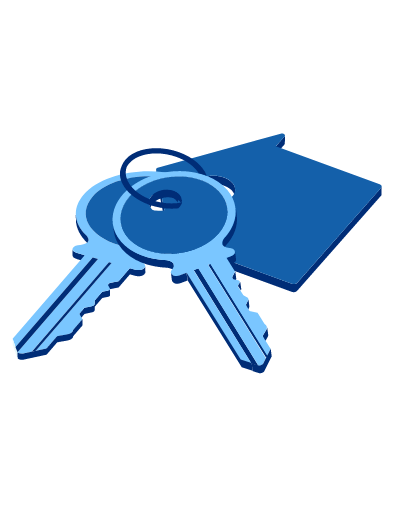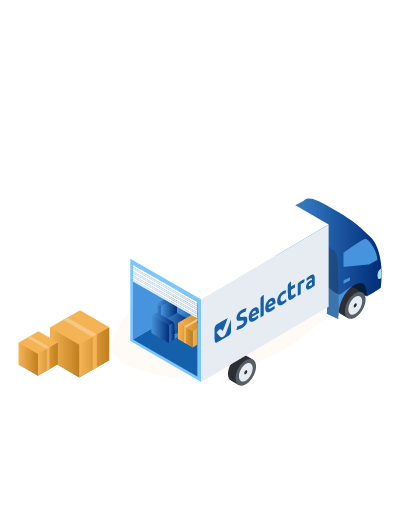Buying a House in Australia: What You Need to Know
Buying a house in Australia is a significant milestone, but the process can be overwhelming with all the steps and costs involved. Whether you’re looking for a home in Melbourne, Queensland (QLD), or elsewhere, it’s crucial to understand the buying process and fees. From budgeting to settlement, knowing what to expect will help make your journey smoother and more informed.
Steps to Buying a House in Australia
The process of buying a house involves several key stages. First, you’ll need to research and set a budget based on your financial situation. It’s advisable to get pre-approved for a home loan before house hunting, as this will give you a clearer understanding of what you can afford. Once you’ve found a suitable property, you’ll make an offer. If accepted, the seller may request a holding deposit—a small amount that shows your intent to purchase. This is common in New South Wales, where the holding deposit secures the property until contracts are exchanged.
After agreeing on the price, you’ll need to hire a conveyancer or solicitor to manage the legal aspects of the purchase. They will review the contract of sale, conduct title searches, and guide you through the settlement process. When contracts are exchanged, you will be required to pay a deposit—usually 10% of the purchase price. Some states, like Queensland, offer a cooling-off period after contracts are signed, allowing you to back out of the deal with minimal penalties. The final step is settlement, where the remaining balance is paid, and ownership is officially transferred to you. Once that is settled, you move into your new home and get everything set up!
New House Checklist
Make sure you have everything you need for your new home with our moving house checklist
What to Look for When Buying a House
When inspecting a property, there are several important factors to consider. The location of the house plays a crucial role, as proximity to schools, shops, and public transport can significantly affect its value and livability. Structural integrity is another essential factor. Look for any signs of damage, such as cracks in the walls, water stains, or sagging ceilings. These could indicate costly repairs.

Renovation needs should also be assessed carefully. If the house requires major repairs, such as restumping or roof replacements, factor these costs into your budget. Additionally, check the property’s zoning and any planned developments in the area that may impact your future living environment. If the house is located in a flood or bushfire-prone area, you’ll need to consider the potential risks and insurance costs. You should also research local energy companies, and if your NBN internet will be compatible with the new house. Make sure to switch any subscriptions you may have as well, so you do not get locked out of your accounts when you move house.

New House? – Get set up now!
Set up utilities at your new home in just one click!
Questions to Ask When Buying a House
Asking the right questions before purchasing a house is crucial in ensuring that you make an informed decision and avoid any unexpected costs or issues down the line. Here are some key questions you should ask during the buying process:
- Has the property undergone any major repairs or renovations?: Inquire about any significant changes or updates made to the property. This could include structural repairs, electrical work, plumbing upgrades, or cosmetic renovations. Understanding the extent of these modifications will help you gauge the condition of the home and whether you’ll need to plan for any future repairs.
- Can I see the pest and building inspection reports?: Request recent pest and building inspection reports to ensure the house is free from termites, mold, or other hidden issues. An inspection can identify problems that might not be visible to the untrained eye but could become expensive to fix.
- What is included in the sale?: Clarify exactly what fixtures, fittings, and appliances are included in the sale. Some sellers may take light fixtures, blinds, or even specific appliances with them, so it’s essential to know what you’ll actually receive when you move in.
- Are there any outstanding council rates or strata fees?: Confirm whether there are any unpaid council rates, strata fees, or other ongoing charges tied to the property. These fees could become your responsibility after the purchase, so it’s important to understand what liabilities you may be taking on.
- What is the property’s history?: Ask about the history of the house, including its age, previous owners, and any past issues with the property. This will give you insight into potential problems that could arise in the future and whether the house has been well-maintained.
- How old are the major systems and appliances?: Inquire about the age and condition of major systems such as the roof, plumbing, heating, cooling, and electrical systems. If these are older, you may need to factor in the cost of replacements or upgrades.
- Is there any history of flooding or natural disasters in the area?: Find out if the property is located in a flood zone or has been affected by natural disasters like bushfires, earthquakes, or landslides in the past. This can impact the safety and long-term value of the property.
- What are the neighborhood and surrounding area like?: Ask about the neighborhood’s safety, amenities, schools, public transport options, and any future development plans in the area. Understanding the local environment and the community can help you decide whether it fits your lifestyle and needs.
- Are there any pending legal disputes or issues with the property?: Check if there are any ongoing legal matters, such as disputes with neighbors or unresolved issues related to the property’s title. These could cause delays or complications in the purchase process or create problems after you move in.
- What is the asking price based on?: Ask the seller or agent to explain how the asking price was determined. This may include recent property sales in the area, property appraisals, and the condition of the market. Understanding the pricing strategy can help you negotiate a fair deal.
By asking these questions, you can gain a clearer picture of the property's true value, condition, and potential issues, helping you make a more informed decision when purchasing a home.
Fees Involved in Buying a House
Buying a house in Australia comes with several additional costs beyond the purchase price. Stamp duty is one of the most significant expenses and is calculated based on the property’s value. Legal fees for hiring a conveyancer or solicitor can range from $1,000 to $3,000, depending on the complexity of the transaction. Lenders Mortgage Insurance (LMI) may be required if your deposit is less than 20% of the purchase price. Other costs include building and pest inspections, which typically range from $400 to $800, as well as loan application fees and moving costs.
To get a clearer picture of all the expenses, you can use a cost of buying a house calculator. This tool can help you estimate the total cost of purchasing a home, including hidden fees that may not be immediately obvious.
Do You Need a Solicitor or Conveyancer When Buying a House?
Many homebuyers wonder whether they need a solicitor or conveyancer when buying a house. While it’s not legally required in all cases, hiring one is highly recommended. A conveyancer or solicitor will handle the legal aspects of transferring property ownership, ensuring that all contracts are valid and protecting you from potential legal issues.
Conveyancers specialize in property law and are often more affordable, while solicitors can provide broader legal advice. If your transaction is complex or involves unique legal challenges, a solicitor may be the better option. Either way, having professional legal assistance is essential for a smooth and secure home-buying experience.

Make a smooth move with Selectra
A hassle-free process : call our energy market brokers today!
State-Specific Considerations
When buying a house in Melbourne or Queensland, there are state-specific rules and considerations to keep in mind. In Melbourne, first-time homebuyers may be eligible for stamp duty concessions or exemptions, which can save thousands of dollars. In Queensland, there is a mandatory cooling-off period of five business days, giving you time to reconsider your purchase after signing the contract. Being aware of these rules can help you take advantage of available incentives and avoid potential pitfalls.
Buying a House with Super
Some Australians may be eligible to use their superannuation savings to purchase a house through the First Home Super Saver Scheme. This scheme allows first-time buyers to withdraw voluntary super contributions for a house deposit. It’s an option worth exploring if you’re looking to maximize your savings for a home purchase.

Buying a House in Australia
Buying a house in Australia is a major financial decision, but with the right knowledge and preparation, it can be a rewarding experience. Take the time to understand what to look for when buying a house, from structural integrity to location. Be mindful of all the fees involved, and don’t hesitate to hire a conveyancer or solicitor to guide you through the legal aspects. Whether you’re buying a house in Melbourne, Queensland, or another state, careful planning and informed decisions will help you achieve your dream of homeownership with confidence.
Frequently Asked Questions
What are the main steps involved in buying a house in Australia?
The main steps include researching properties and setting a budget, obtaining pre-approval for a home loan, making an offer, paying a holding deposit, hiring a conveyancer or solicitor to handle legal aspects, paying the deposit upon contract exchange, considering any cooling-off periods, and finalizing settlement.
What should I look for when inspecting a house?
Consider the location with access to schools, shops, and transport; check structural integrity for damage or cracks; evaluate renovation needs and potential costs; investigate zoning and any planned developments nearby; assess whether the property is in flood or bushfire zones; and ensure the utilities and internet services are compatible with the home.
What questions should I ask the seller or agent before buying?
Ask about any major repairs or renovations, request recent pest and building inspection reports, clarify which fixtures and appliances are included, verify if there are outstanding council or strata fees, inquire about the property's history and condition of major systems, check for any history of natural disasters, request information on neighborhood safety and amenities, ask about any legal disputes related to the property, and understand how the asking price was determined.
What additional costs should I budget for when buying a house?
Budget for stamp duty, legal and conveyancing fees, lender’s mortgage insurance if applicable, building and pest inspections, loan application fees, and moving expenses.
Do I need a solicitor or conveyancer?
While not legally required in every state, it is highly recommended to hire a solicitor or conveyancer to manage the legal transfer of property, review contracts, and protect you from potential issues during the buying process.
Are there specific rules or incentives by state?
Yes. For example, NSW uses holding deposits to secure properties before contract exchange, Queensland offers a five-day cooling-off period, and Victoria provides stamp duty concessions for eligible buyers. It’s important to familiarize yourself with your state’s specific regulations and available incentives.
Can I use my superannuation savings towards my home deposit?
Yes, under schemes such as the First Home Super Saver Scheme, eligible first-home buyers can withdraw voluntary super contributions to help build their home deposit.

Looking for a New Internet Plan for Your Home?
Selectra Can Provide Advice & Help You Find The Best Plan

Looking for a New Internet Plan for Your Home?
Selectra Can Provide Advice & Help You Find The Best Plan

